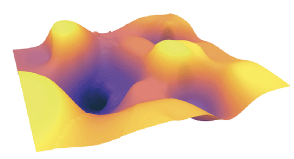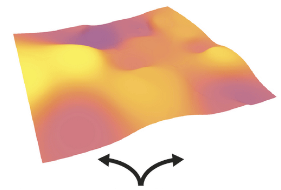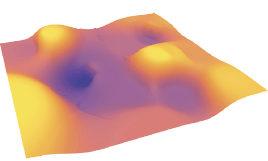Introduction
In recent years, there has been a significant shift towards exploring alternative methods that go beyond traditional therapies. One such avenue garnering attention is microdosing—a practice that involves taking minimal doses of certain natural substances. This article delves into the potential of substances like Lion’s Mane, Psilocybin, Cordyceps, and Turkey Tail, along with vitamins B12 and Niacin B3, in the context of ASD treatment.
We’ll explore the neurological underpinnings of ASD, how microdosing might play a role in neurological repair, and the combined effects of these natural substances. We’ll also look at the research evidence and case studies supporting their use and discuss the necessary considerations and cautions.
Understanding ASD on a Neurological Level
Autism Spectrum Disorder (ASD) is not just a behavioral condition; it’s fundamentally rooted in the brain’s structure and chemistry. At its core, ASD is characterized by differences in neurological and biochemical functioning. These differences manifest in various ways, impacting communication, behavior, and social interactions.
Neurologically, ASD involves variations in brain connectivity. Studies have shown that individuals with ASD often have an atypical neural connectivity pattern. This means that the way neurons (nerve cells) communicate within the brain differs from typical patterns. In some areas of the brain, there might be over-connectivity, leading to heightened responses to stimuli. In other areas, under-connectivity can result in challenges with complex tasks that require higher-order thinking and integration of information.
Biochemically, ASD is associated with imbalances in neurotransmitters, the chemicals that neurons use to communicate. For instance, alterations in serotonin levels are frequently observed in individuals with ASD. Serotonin plays a crucial role in mood regulation, social behavior, and cognition. Dysregulation in this neurotransmitter can significantly impact the behavioral and emotional aspects of ASD.
Furthermore, research suggests that individuals with ASD may experience differences in brain development. During critical periods of brain growth, particularly in early childhood, the brains of individuals with ASD may develop in unique ways, affecting the formation of neural networks. This development can influence cognitive functions, sensory processing, and emotional regulation.
The Role of Microdosing in Neurological Repair
Microdosing, the practice of consuming very small, sub-hallucinogenic doses of certain substances, is emerging as a frontier in neurological repair, particularly in the context of Autism Spectrum Disorder (ASD). This approach is not about achieving a psychedelic experience but rather harnessing the subtle biochemical impacts these compounds can have on the brain.
Lion’s Mane:
Known for its nerve growth factor (NGF) enhancing properties, Lion’s Mane mushroom is believed to stimulate the growth and repair of neurons. NGF is crucial for the maintenance and survival of nerve cells, and an increase in NGF can potentially lead to improved cognitive functions and neurogenesis (growth of new neurons).
Psilocybin:
Found in certain mushrooms, Psilocybin has shown promise in facilitating neuroplasticity—the brain’s ability to reorganize itself by forming new neural connections. This can be particularly beneficial in ASD, where neural connectivity patterns are often atypical.
Cordyceps:
This fungus is known for its potential in increasing ATP production, the energy currency of the cell. Enhanced ATP levels can lead to better neuronal health and function, possibly aiding in cognitive processes and overall brain health.
Turkey Tail:
Rich in antioxidants and polysaccharides, Turkey Tail mushrooms may support immune health and combat oxidative stress in neurons. Oxidative stress is implicated in various neurological conditions and managing it can be vital for neuronal integrity.
Vitamin B12:
Crucial for nerve health and the maintenance of the myelin sheath that protects nerve fibers, B12 can play a significant role in neurological functioning. Deficiencies in B12 have been linked to neurological and cognitive impairments.
Niacin B3:
Important for brain metabolism and DNA repair, Niacin B3 also plays a role in neuron health. Its role in producing serotonin and other neurotransmitters can impact mood and cognitive functions, areas often affected in ASD.
The premise of microdosing these substances lies in their potential to affect neurite length and neuron growth, areas crucial for improving the neurological anomalies associated with ASD. By potentially enhancing neuroplasticity and promoting neuron health, microdosing could offer a novel approach to improving some of the neurological aspects of ASD.
Synergistic Effects of Microdosing Components
The concept of synergy, where the combined effect of substances is greater than the sum of their individual effects, plays a crucial role in the realm of microdosing for Autism Spectrum Disorder (ASD). When substances like Lion’s Mane, Psilocybin, Cordyceps, Turkey Tail, and vitamins B12 and Niacin B3 are used together in microdoses, their individual neurological benefits may be amplified, offering a multifaceted approach to enhancing brain function and neuroplasticity.
Enhanced Neuroplasticity:
The combination of Psilocybin and Lion’s Mane, for instance, is thought to be particularly potent. Psilocybin’s role in promoting neuroplasticity may be complemented by Lion’s Mane’s ability to support neuron growth and repair. This combination could potentially encourage the brain to form new neural pathways, improving areas of communication, social behavior, and cognitive flexibility that are often challenging in ASD.
Energy and Neuron Health:
Cordyceps, with its potential to increase ATP production, alongside Niacin B3’s role in brain metabolism, can offer a boost in overall brain energy and functioning. This increased energy might help the brain process information more efficiently, a benefit for individuals with ASD who may experience information processing differences.
Neuroprotective Effects:
The antioxidant properties of Turkey Tail, combined with the myelin sheath support from Vitamin B12, could provide a neuroprotective effect. Protecting neurons from oxidative stress and maintaining the integrity of nerve fibers can be crucial for maintaining cognitive functions and preventing neurodegeneration.
Balanced Neurotransmitter Levels:
The role of Niacin B3 in serotonin production, coupled with the potential mood-regulating effects of Psilocybin, could lead to more balanced neurotransmitter levels. This balance is essential in managing the emotional and behavioral aspects of ASD.
By strategically combining these substances, the goal is to target multiple facets of neurological functioning simultaneously. This multi-pronged approach could lead to improvements in neuroplasticity, cognitive functions, and overall brain health, which are essential in addressing the complexities of ASD.
It’s important to emphasize that while these synergistic effects are promising, much of the evidence is still emerging. The field of microdosing for neurological conditions like ASD is relatively new, and further research is essential to fully understand the efficacy and safety of these combinations.
Case Studies and Research Evidence
The exploration of microdosing, particularly the combination known as the “Stamets Stack” named after mycologist Paul Stamets, has gathered momentum in recent research. A study published in Scientific Reports in 2022 investigated the effects of microdosing psilocybin mushrooms, Lion’s Mane, and niacin (vitamin B3) in 953 microdosers and 180 non-microdosers over approximately 30 days. The study found small- to medium-sized improvements in mood and mental health among the microdosers, with the 55+ age group showing notable improvements in psychomotor performance.
The researchers emphasized the novelty of these findings, acknowledging the need for further research to confirm and clarify the effects of this combination. Specifically, they pointed to the potential of psilocybin microdosing in improving depression and anxiety, highlighting the importance of more research to establish the nature of the relationship between microdosing, mood, and mental health. The study, while not addressing critiques of microdosing such as the placebo effect, provided promising evidence that low-dose psilocybin is overall beneficial and relatively safe.

 Psilocybin therapy “flattens” the brain’s landscape and “opens up” the rigidity of the depressed to allow new thoughts, insight, and perspectives to emerge. Image by Richard Daws, Kings College London Post-treatment
Psilocybin therapy “flattens” the brain’s landscape and “opens up” the rigidity of the depressed to allow new thoughts, insight, and perspectives to emerge. Image by Richard Daws, Kings College London Post-treatment Post-treatment, a flatter landscape makes it easier for patients to experience healthier flexibility and diversity in their thought patterns. Image by Richard Daws, Kings College London
Post-treatment, a flatter landscape makes it easier for patients to experience healthier flexibility and diversity in their thought patterns. Image by Richard Daws, Kings College London